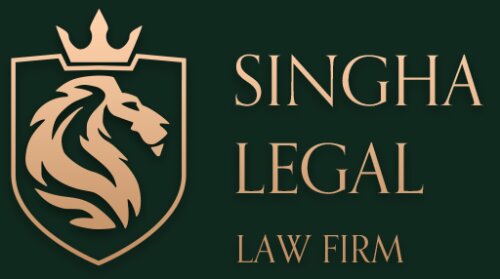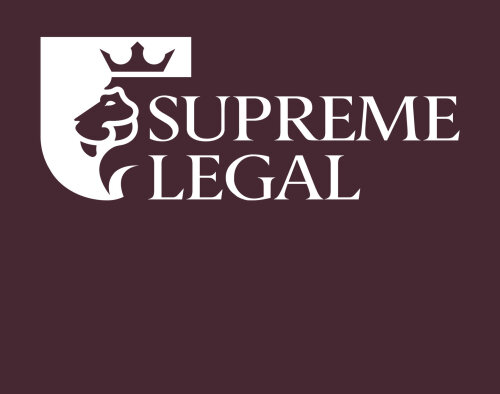Best Class Action Lawyers in Phuket
Share your needs with us, get contacted by law firms.
Free. Takes 2 min.
List of the best lawyers in Phuket, Thailand
Legal guides written by SIAM LEGAL INTERNATIONAL:
- Defamation Laws in Thailand: Criminal Charges and Civil Suits
- The State of Thailand’s Long-Term Resident (LTR) Visa Program in 2025
- The Penalties Of Not Filing Your Income Tax Return As A Foreigner In Thailand
About Class Action Law in Phuket, Thailand
Class action law in Phuket, Thailand, provides a mechanism for a group of people with similar claims to file a lawsuit collectively. It is designed to increase the efficiency of the legal process by consolidating numerous similar individual claims into a single action. This type of litigation is particularly relevant in cases involving consumer rights, environmental harm, and mass personal injuries caused by defective products or fraudulent business practices. Class actions help individuals who might otherwise be unable to pursue individual lawsuits due to cost or complexity.
Why You May Need a Lawyer
There are several situations where individuals in Phuket may need legal assistance with class actions. These include instances where a company has engaged in deceptive or unfair business practices, causing harm to consumers. Environmental damage affecting a community may also prompt collective legal action. Likewise, if you have suffered an injury from a defective product that affected others, a class action lawsuit might be appropriate. Legal guidance can help navigate the complexities of these cases, ensuring a fair process and adequate representation.
Local Laws Overview
Phuket, as part of Thailand, follows the legal framework established for class actions within the country. The relevant laws facilitate the filing of group lawsuits and set the criteria for forming a class. Typically, the class must share specific commonalities, such as the nature of the claim and the type of damages incurred. Courts in Thailand decide whether a class action is appropriate based on these criteria. Importantly, the legal process requires the appointment of a lead plaintiff and legal representation to manage the case on behalf of the entire group, ensuring the proceedings are systematic and fair.
Frequently Asked Questions
What is a class action lawsuit?
A class action lawsuit is a legal action taken by a group of people with similar claims against the same defendant. It allows the group to consolidate their claims and seek collective justice.
Who can join a class action in Phuket, Thailand?
Any individual who has suffered harm or damages similar to those of the class can join the action, provided they meet the criteria set by the court for the specific case.
How are class actions initiated?
Class actions are typically initiated by filing a lawsuit with the court. An attorney must demonstrate that the group’s claims have sufficient commonality to proceed as a collective action.
What role does the lead plaintiff play?
The lead plaintiff represents the interests of the class in the lawsuit. This individual, often with the help of legal counsel, will make critical decisions regarding the case and may testify on behalf of the class.
What are the benefits of joining a class action?
Joining a class action can provide individuals access to legal resources they otherwise might not afford. It also streamlines the legal process, facilitates consistent judgments, and distributes the risk among a group.
Are class action settlements automatic for all members?
If a settlement is reached, it generally applies to all class members unless they have opted out. Members typically receive compensation based on the settlement agreement but may need to submit a claim to receive their share.
Can I file an individual lawsuit instead of joining a class action?
Yes, individuals can opt-out of a class action and file their own lawsuit. This option might be preferable if their claim is significantly different or they seek a different kind of remedy.
What are the costs involved in joining a class action?
Typically, class action lawyers work on a contingency fee basis, meaning they only get paid if the case is won. This arrangement makes it financially feasible for individuals to participate without upfront costs.
How long do class action lawsuits take?
Class action lawsuits can take several years to resolve. The timeline varies depending on the complexity of the case, the number of plaintiffs involved, and the legal processes followed.
Where can I find a lawyer for a class action in Phuket?
It is advisable to contact legal firms specializing in class actions within Phuket or the broader region of Thailand. They will have the expertise to handle such complex cases.
Additional Resources
For those seeking legal advice or more information about class actions in Phuket, there are several resources available. The Lawyers Council of Thailand provides listings of licensed attorneys. Consumer protection agencies can offer guidance on rights and possible actions. The Office of the Judiciary in Thailand is another valuable resource for understanding court procedures and regulations regarding class actions.
Next Steps
If you need legal assistance with a class action lawsuit, start by consulting a qualified attorney with experience in this field. Gather all relevant documents and evidence relating to your case to assist your lawyer. Consider joining consumer rights groups or community organizations that may offer support and additional resources. Lastly, stay informed about your rights and any developments in class action law within Thailand to better understand your position and options.
Lawzana helps you find the best lawyers and law firms in Phuket through a curated and pre-screened list of qualified legal professionals. Our platform offers rankings and detailed profiles of attorneys and law firms, allowing you to compare based on practice areas, including Class Action, experience, and client feedback.
Each profile includes a description of the firm's areas of practice, client reviews, team members and partners, year of establishment, spoken languages, office locations, contact information, social media presence, and any published articles or resources. Most firms on our platform speak English and are experienced in both local and international legal matters.
Get a quote from top-rated law firms in Phuket, Thailand — quickly, securely, and without unnecessary hassle.
Disclaimer:
The information provided on this page is for general informational purposes only and does not constitute legal advice. While we strive to ensure the accuracy and relevance of the content, legal information may change over time, and interpretations of the law can vary. You should always consult with a qualified legal professional for advice specific to your situation.
We disclaim all liability for actions taken or not taken based on the content of this page. If you believe any information is incorrect or outdated, please contact us, and we will review and update it where appropriate.















